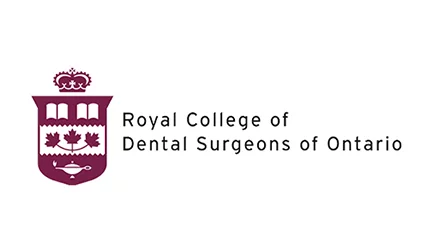ROOT CANAL: DIAGNOSIS, PROCEDURE, AND COST
A root canal is an endodontic treatment that saves the original tooth by eliminating the bacteria from the infected root, which also minimises the risks of reinfection. In the root canal procedure, the inflamed or infected pulp is extracted, and the affected area is then carefully disinfected, cleaned, and filled.
A root canal treatment becomes necessary when the decay remains in your teeth for a prolonged period and reaches the innermost layer of teeth, the pulp. Root canal treatment has numerous advantages, including:
- It boosts your oral and overall health.
- It effectively prevents jawbone degeneration.
- Improves dental aesthetics.
- Stops the spread of infection in the surrounding teeth.
- Restore the form and function of teeth.
- The root canal procedure is almost painless due to the use of sedatives.
Moreover, it is really necessary to preserve the quality of your natural teeth as no artificial alternative can function like them. That’s why a root canal is the most preferred dental procedure. Poor oral hygiene is the most common factor that results in the need for a root canal treatment.
ROOT CANAL DIAGNOSIS
Our teeth basically have three layers. The outermost layer is the enamel, the middle layer is called dentin, and the innermost layer is the pulp which is the centre of the tooth and contains blood vessels, connective tissues, and nerves.
The root canal treatment becomes compulsory when the decay reaches the innermost layer of the tooth, which is the pulp and destroys it. In such cases, if immediate treatment is not provided to the affected tooth, the infection can reach the neighbouring teeth and become critical to treat. Therefore, treating the infection in the initial stage is necessary to avoid severe consequences.
People must undergo root canal treatment if they experience the following:
- Damaged or cracked teeth.
- Infected root pulp.
- Swollen gum area.
- Discoloured or stained tooth.
- Persistent pain and extreme sensitivity to hot or cold food items.
- The appearance of pimples on the gums.
- Loosened teeth.
- Presence of pus around the tooth roots.
You can get rid of all the above-mentioned dental issues through root canal treatment. It is a painless and highly effective procedure. After getting the treatment done, patients may feel slight pain in the affected area or minor discomfort, but these are temporary side effects and fade away on their own or with painkillers.
THE PROCEDURE OF ROOT CANAL TREATMENT
The root canal treatment procedure mainly requires two appointments for completion. Unlike the traditional dentistry processes, the root canal is a painless procedure and is extremely effective.
- In the root canal treatment procedure, the dentist first numbs the affected area with the help of anaesthesia. The numbing agents can be nitrous oxide gas and oral or intravenous sedatives.
- Before initiating the treatment process, the dentist places a small rubber dam over the affected area. This keeps the teeth isolated and dry during the procedure. Then the dentist makes a small opening to access the pulp.
- Then the dentists remove the tissues, nerves, and vessels inside the tooth with tiny dental instruments.
- After the removal of the pulp, the dentist shapes the canal. In this step, he also ensures that the canals are carefully disinfected and cleaned.
- Then the emptied canals are filled with a material called gutta-percha which is a rubbery and flexible dental material.
- After filling the canals, they are temporarily sealed with dental fillings to prevent the reentry of bacteria and cavities
- In the final step, the dentist concludes this process by placing a custom-made dental crown over the treated tooth to restore its bite and protect its structure. The fabrication of these custom-made crowns usually takes two to three weeks to complete.
- When the crown is ready to be placed, the dentist removes the temporary filling and places the fabricated, custom-made dental crown over the tooth, giving you a natural appearance and improving the affected tooth’s chewing abilities.
APPROXIMATE COSTS OF ROOT CANAL TREATMENT
The estimated costs of root canal treatment differ depending on the extent of tooth decay, the number of infected teeth, and the location of the infection. The costs also fluctuate based on your region. However, the average cost of root canal treatment ranges between $500 to $6000.
Root canal proves to be more expensive on molars than on front teeth because it is more complex to extract the infection in the posterior teeth. The root canal procedure for molars costs between $500 to $2000. Whereas the charges for front teeth treatment are nearly $300 to $1500, and for bicuspids, the costs range from $400 to $1800.
FAQs:
CAN AN X-RAY TELL WHETHER YOU NEED A ROOT CANAL TREATMENT?
X-ray gives a clear assessment of infection in the tooth roots so that it can give definite proof of whether you need to have a root canal treatment.
If a dental issue is evaluated in the initiation, the right treatment can stop the spread of infection to other areas of the mouth and prevent serious dental complications.
HOW NECESSARY IS A ROOT CANAL TREATMENT?
The root canal is considered a dental emergency procedure because patients feel extreme pain and discomfort from tooth infections and should be treated as soon as possible.
If such dental issues are left untreated for longer periods, they can cause severe complications, including the death of affected teeth.
WHAT IS AN ALTERNATIVE TO A ROOT CANAL?
If an individual does not get root canal treatment at an appropriate time and the infection spreads to the neighbouring teeth, then in such cases, the dentist undergoes another complex dental procedure which is tooth extraction, to prevent the proliferation of bacteria.
In this process, the infected tooth is removed and replaced with artificial alternatives like dentures, dental implants or bridges.
HOW CAN YOU AVOID ROOT CANAL TREATMENT NATURALLY?
You can avoid root canal treatment if you take good care of your oral health by cleaning your teeth daily and by avoiding starchy and sticky food items. If you play any sports, you should wear a mouthguard to prevent dental injuries and avoid root canal treatment.











